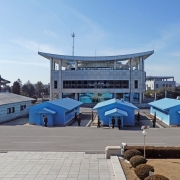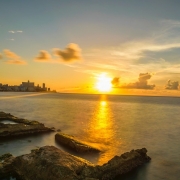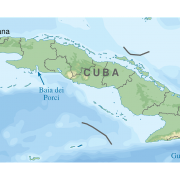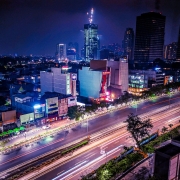Why did the superpowers get involved in the Korean War?
Topic of Study [For H2 and H1 History Students]:
Paper 1: Understanding the Cold War (1945-1991)
Section A: Source-based Case Study
Theme I Chapter 2: A World Divided by the Cold War – Manifestations of the global Cold War: The Korean War (1950)
Historical context
The Korean War began as a civil war between North Korea and South Korea. Local leaders Kim II-sung and Sygnman Rhee pursued the aim of reunifying the Korean peninsula under diametrically-opposite ideologies. Notably, both governments turned to the superpowers for military support. Yet, it is myopic to claim that the conflict remained localised as the USA and Soviet Union were also influenced by their strategic motivations to aid the two Koreas, thus escalating the event to a proxy war.
1. Stalin’s tactical gambit
From the Soviet perspective, Stalin aided Kim II-sung to divert the attention of his Cold War rival from the European theatre of war. Distinguished historians Donggil Kim and William Stueck arrived at this conclusion after analysing Joseph Stalin’s telegram to the Czechoslovak President Klement Gottawald.
The reason we eventually allowed the war in Korea is because: let us suppose that the U.S. continues to be tied down in the Far East and also pulls China into the struggle. What might come out of this? It follows that America would over-extend itself in this struggle. It is clear that the United States of America is presently distracted from Europe in the Far East. Does it not give us an advantage in the global balance of power, especially back in Europe? It undoubtedly does, allowing us to use this war to our advantage.
An excerpt from Stalin’s telegram to Czech President Klement Gottwald, 27 August 1950.
The telegram was delivered on 27 August 1950, nearly two months after North Korean forces crossed the 38th Parallel and entered the South Korean territory. Interestingly, Stalin reassured his Cold War ally that Soviet Union’s absence in the Security Council was a calculated risk.
2. A litmus test for American commitment
As for the Truman administration, increased US involvement in the Korean War was largely influenced by the fear of ideological expansion in East Asia as well as domestic political pressure.
Chinese Communist leader Mao Zedong formed the People’s Republic of China (PRC) on 1 October 1949 after his victory against Chiang Kai-shek’s nationalists in the Chinese Civil War. Soon, Stalin forged diplomatic ties with Mao Zedong by signing the Treat of Friendship, Alliance and Mutual Assistance on 14 February 1950. These developments had alarmed the US government as the Soviet Union gained a new ally.
The “loss of China” became a partisan issue. Leading Republicans, especially Senator Robert A. Taft of Ohio and former President Herbert C. Hoover, assailed Truman, Acheson, and “treacherous Communists” in the State Department for Chiang’s defeat. MacArthur, considered the China Lobby’s ally, said that allowing the Communists to grow in power in China was “the greatest political mistake we made in a hundred years in the Pacific.”
An excerpt from “Truman, MacArthur, and the Korean War” by Dennis D. Wainstock.
Additionally, Truman also faced mounting pressure domestically to fight the Communists. Republican Senator Joseph McCarthy criticised Truman for being “soft” on Communism. As such, the American government became more determined to defend South Korea. These actions were also meant to demonstrate to its allies that the USA was ready to protect them from external aggression, as described by Dean Acheson at the National Press Club on 12 January 1950.
Although post-World War II anti-communism and the makings of the Second Red Scare can be traced all the way back to 1946, not until after the outbreak of hostilities in Korea and the Chinese intervention did McCarthy reach full fury, hurling wild accusations and contriving a political atmosphere so poisonous that it has since come to bear his name: McCarthyism.
…however, the overall political atmosphere he created certainly affected the parameters within which Truman and his advisers had to operate.
An excerpt from “Truman and Korea: The Political Culture of the Early Cold War” by by Paul G. Pierpaoli.
What can we learn from this article?
Consider the following question:
– How far do you agree that ideological concerns were the main motivation that shaped superpower involvement in the Korean War?
Join our JC History Tuition and learn more about the Korean War. The H2 and H1 History Tuition feature online discussion and writing practices to enhance your knowledge application skills. Get useful study notes and clarify your doubts on the subject with the tutor. You can also follow our Telegram Channel to get useful updates.
We have other JC tuition classes, such as JC Math Tuition and JC Chemistry Tuition. For Secondary Tuition, we provide Secondary English Tuition, Secondary Math tuition, Secondary Chemistry Tuition, Social Studies Tuition, Geography, History Tuition and Secondary Economics Tuition. For Primary Tuition, we have Primary English, Math and Science Tuition. Call 9658 5789 to find out more.




